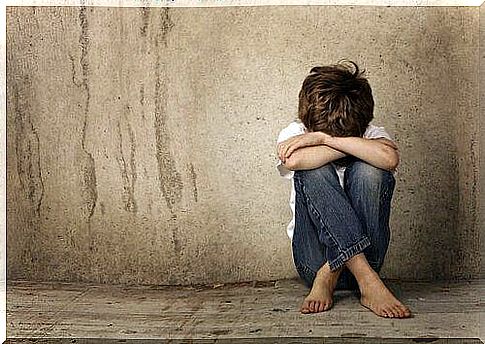Contempt Can Lead To Psychological Damage

Contempt hurts and demoralizes. It can be a gesture, like a grimace or frown, that reflects disapproval of what has been said or done at some point. Few types of behavior are as detrimental to psychological integrity as those that end up ruining relationships or affecting a child’s development for the rest of their lives.
Although we are more accustomed to talking and reading about hatred and indifference rather than contempt, it undoubtedly represents the most deadly feeling. It is a weapon of mass destruction that requires sophistication. While anger or apathy can be immediate reactions, contempt is much more than that.
People who hate others have a clear intention of humiliation. They seek to ridicule, demean and even ignore others. They do this by finding the right moment to hurt the mind, destroy self-esteem, and forever destroy confidence.
This is often their agenda, either overtly or discreetly. However, there is one thing we need to keep in mind: Hateful people display cowardly behavior that is nurtured by bitterness and a total lack of emotional maturity.

The daily contempt that destroys relationships
We have all experienced contempt in one way or another. Maybe it was in childhood when someone did not understand our drawings. Instead, they criticized or ridiculed them. Maybe one of our parents downplayed everything we did, said, or wanted.
It is also possible that we were in a relationship with someone who had this habit. They made grimaces every time we opened our mouths. Or maybe they criticized our tastes, belittled our opinions and everything we did or did not do.
It is no coincidence that John Gottmann, a psychologist and acclaimed relationship expert, after a 40-year study, announced that contempt is undoubtedly one of the things behind most relationship breakdowns.
Let’s take a closer look at what usually defines contempt:
The anatomy of contempt
- Contempt is the opposite of empathy.
- While empathy is our ability to open up to another person and understand their reality and needs, contempt does the opposite. First we build a wall. Then we line up on top of it to rack up and demean others.
- Children who grow up in environments of contempt and humiliation are more likely to develop low self-esteem, guilt, embarrassment, stress and anxiety.
- People who carry hatred for others have certain things in common. These people do not tolerate disagreement and cannot understand the needs of others. In addition, they are not very good at communication. Therefore, they resort to grimaces and resigned expressions to show their deep contempt.
- These people have certain psychological dimensions. They are full of frustration and anger. Their contempt reflects their own negative feelings and personal dissatisfaction with others.

Contempt and mental harm
Persistent contempt causes mental harm and affects physical health. The University of Pennsylvania conducted a study at a number of schools and discovered several interesting things. The first was its effect on self-esteem. All students who had experienced humiliation and contempt had a more negative self-perception.
Likewise, contempt, stress and persistent harassment have serious effects on the immune system. It is more common for victims to be exposed to colds, allergies, digestive problems and infections. All of this forces us to tackle this problem that affects people.
It is the most harmful feeling as it disables others and causes psychological damage. It shows an absolute lack of compassion and empathy. It creates pain and fear in others. Eventually, it ends up ruining our emotional relationships and can cause children to grow up with fear and low self-esteem.









